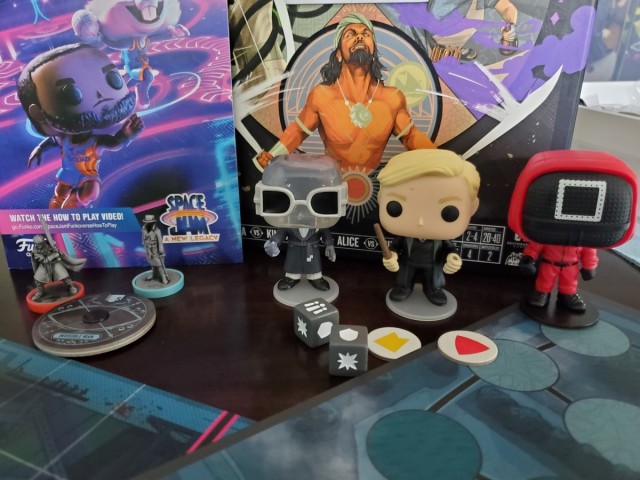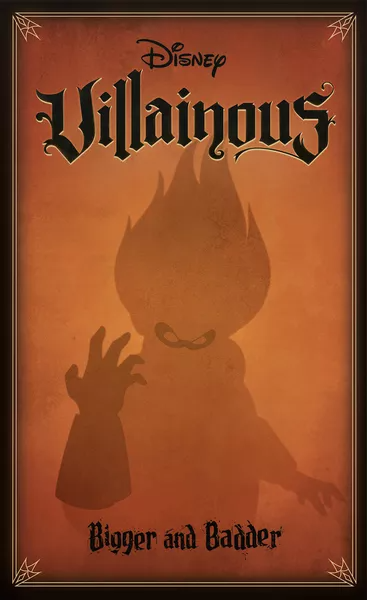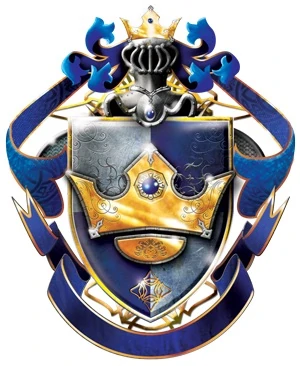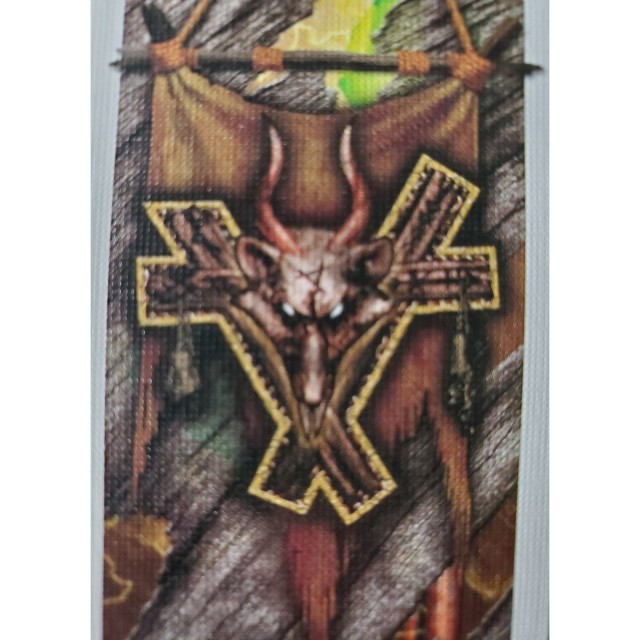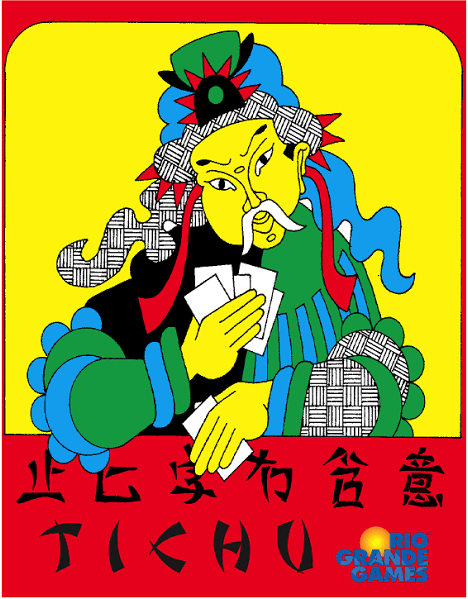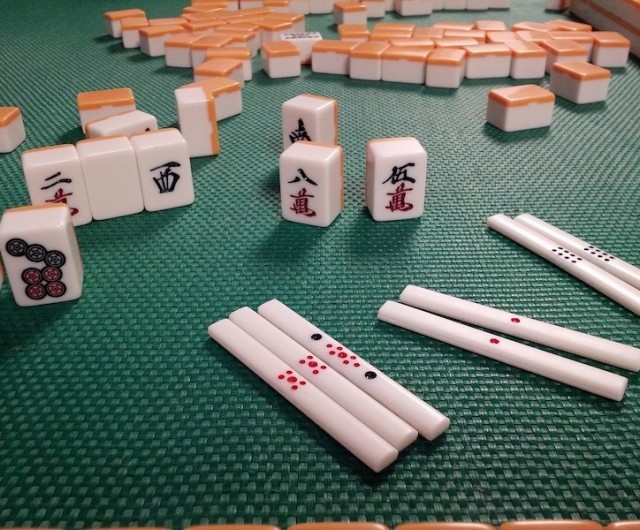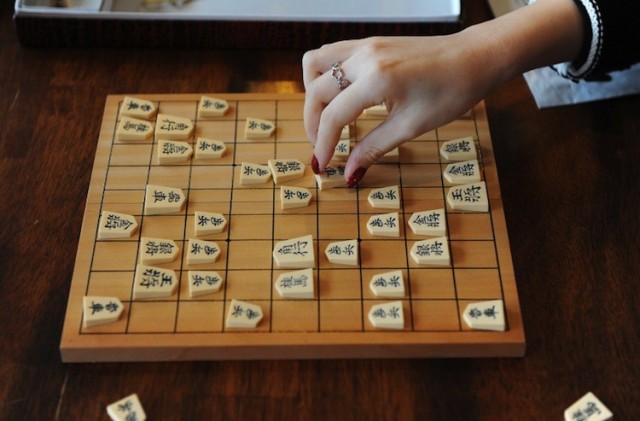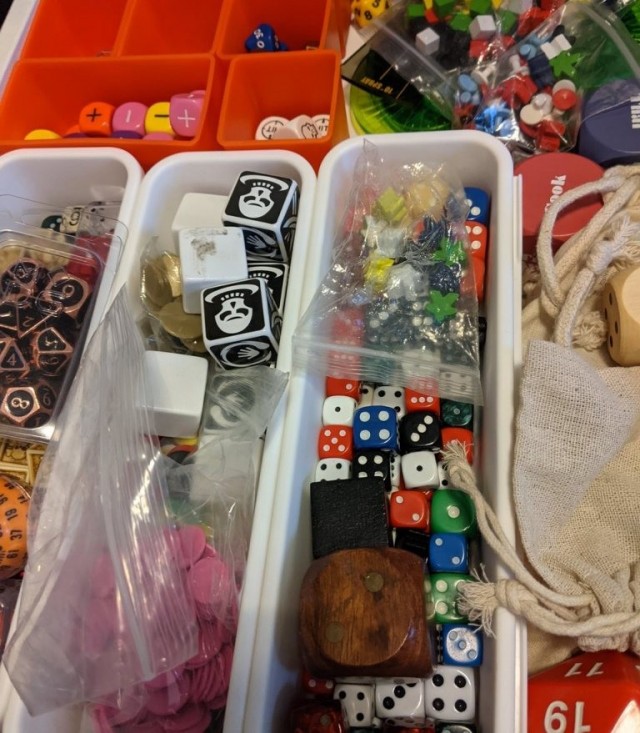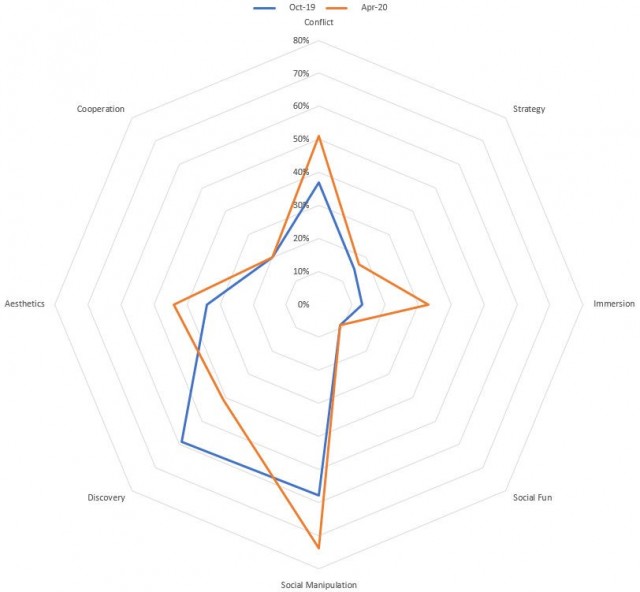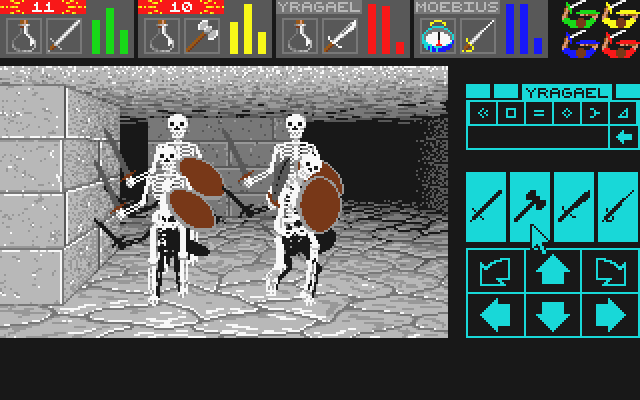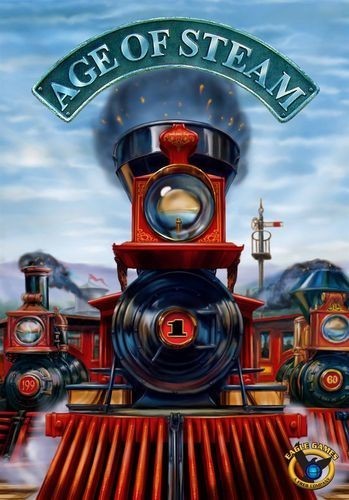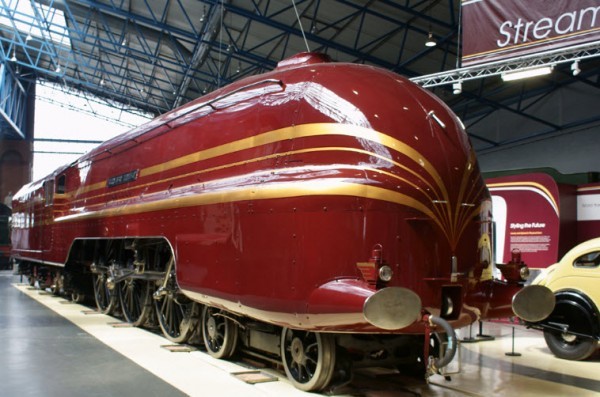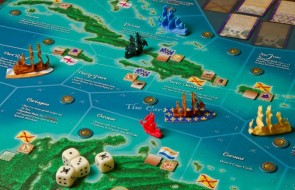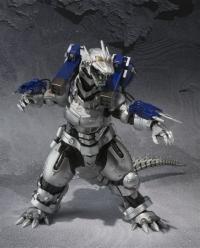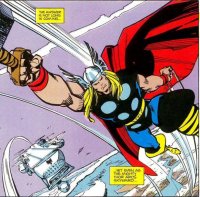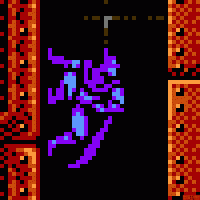Two very different approaches to pirate games seem to embody the age-old Ameritrash vs Euro conflict.
Who doesn't like pirates? (I mean, other than Richard Phillips...) And, more importantly, who doesn't like pirate games? Whether it's pickup-and-deliver or raiding someone else's attempt to do so, pirate games have usually held a special place in the hearts of many gamers, both for the romantic notions of the era and the similarly thrilling way those games and stories are usually rolled out. Pirates tend to be idealized alongside dragons, zombies, and robots as another stalwart of the geek, gaming crowd (pointed and accurate comment by Elizabeth Hargrave goes here...) However, despite the proliferation of said games, as with all topics, it's difficult to make one really stand out from the crowd. Many would argue that what a pirate game really needs is flavor, so that the Curse of the Black Pearl kind of sheen really comes through (formerly known as "the Ameritrash approach.") OTOH, all the sheen in the world won't cover up a game that isn't working from a solid design (formerly known as "the Euro approach.") So, what I thought I'd do here is take a look at two of the most beloved of the pirate scene and see what makes them emblematic of their respective styles and which created the lasting appeal that both have today, long after their publication (and with one, unfortunately, out of print.) The two games I'm speaking of are Merchants & Marauders and Black Fleet.
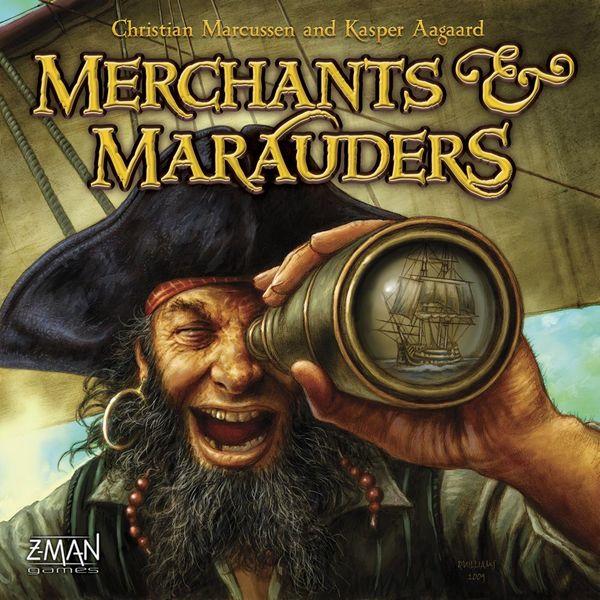
Merchants & Marauders is essentially Talisman on a boat. You have a captain who has a collection of stats, a unique ability, and whom you sail around trying to fulfill Missions, resolve Rumors, and collect money to increase his/her power until others are willing to acknowledge them as the most glorious seafarer of the 17th-century Caribbean. Black Fleet, in contrast, is a much more abstracted version of that effort (no captain, no stats, no rumors) but which still manages to carry the theme along with it, albeit much more mechanically and, in some ways, with a sounder design approach. And that's kind of the crux of the oldest argument of the modern gaming era: What really makes a game- theme or system?
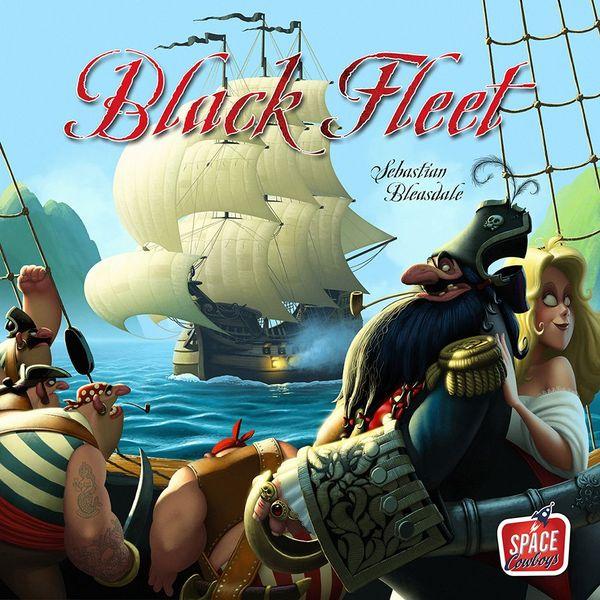
Merchants and Marauders is dripping with theme. The board represents the, you know... actual Caribbean region, from Cartagena to St. John. Many of the captains are very loosely based on actual historical figures who were present in that area: Dutch captain in the game, Machiel van Riebleeck, is an almost-namesake for actual Dutch navigator Jan van Riebeeck, for example. Nassau was notorious as a haven for pirates at the time so, in the game, scouting naval ships have to succeed twice to find players. And that theme extends to basic elements, as well. If you're being pursued by the French authorities, you can't dock in French ports. But you can also just make a lot of money by shipping tobacco, sugar, lumber, and cocoa to various ports where they're in demand. Furthermore, there's nothing that prevents you from being a plain, old merchant and suddenly swinging to the more aggressive end of the spectrum by ransacking another nation's boat with a letter of marque; just like the "privateers" of the time.
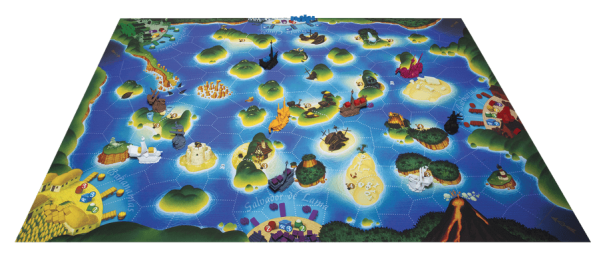
In contrast, Black Fleet has no names of people, places, or even things. The game is set in a nameless archipelago. The cargo that you're shipping is defined solely by five different colors, as are the naval ships that pursue the players' pirates. Just like Merchants & Marauders, you do get to be both a merchant and a pirate at the same time, although it's not an option, but rather an essential part of the game. Even the game's name, "Black Fleet", comes from the color of pieces that the first player always uses, which is one among the more mundane selection of colors ever offered to a gaming group: white, gray, and brown being the others. But the most interesting thing about all of this nondescript setting is that it detracts from the game in not the slightest bit.
The system that embodies the game of Black Fleet is simple, but with remarkable depth. Merchants do what merchants do: ship stuff from one place on the board to another, in search of the highest profit. Pirates do what pirates do: raid the merchants so they can take their cargo and bury it as treasure on a desert island. And navies do what navies do: hunt the pirates and try to sink them. What brings Black Fleet a bit closer to Merchants & Marauders in terms of chrome are the Development cards, which give each player unique abilities for at least one of the ships that they'll be moving on their turn. What takes it one step further are the Fortune cards, most of which focus around movement advantages, income advantages for Merchants, or breaking the cardinal rule of the game: 1 action per ship per turn. But it's the system that is the driving point of the game. The Fortune cards are almost all based on movement, because movement, while a huge part of games like Merchants & Marauders, is absolutely central to Black Fleet. It's something that encourages the players to engage with the basic strategy of the game, much like an abstract (chess, etc.), rather than with trying to emphasize the unique aspects of oneself (i.e. not Cosmic Encounter.) That is, again, until those Development cards come into play.
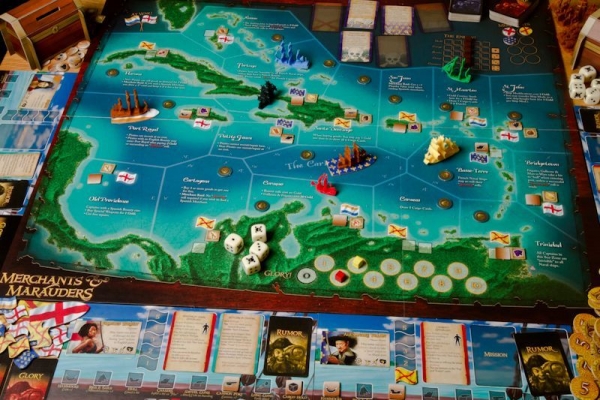
The contrast in chrome between the two games ranges from nonexistent (various mechanical upgrades) to extensive (Rumors, Missions, etc.) The latter are all Merchants & Marauders because, as noted, it's an "Ameritrash" design. The primary focus of Merchants & Marauders, as with many AT games, is to tell a story. You can do that with your unique captain and by following a Rumor to Tortuga and outiftting your ship with Heated Shot and Chasers. On top of that, you also have an element that Black Fleet, like most "Euros", tries to minimize: random events. The Event deck for Merchants & Marauders can shape a large part of that game's story on its own, as you suddenly find yourself unable to enter ports because your home nation is at war or a hurricane is sweeping through the area or plague has hit a couple ports or the local population is in the midst of an uprising and so on. Plus, completing Missions or Rumors or simply generating a lot of cash as both merchants and pirates hope to do brings Glory cards, which range from fancy crew members (Master Gunner, etc.) that help your basic functions to Perfect Navigation that gives you extra actions for good Seamanship rolls to being able to bring on a sudden Fog before a battle (How Curse of the Black Pearl can you get?), among dozens of others. Again, every game a story.
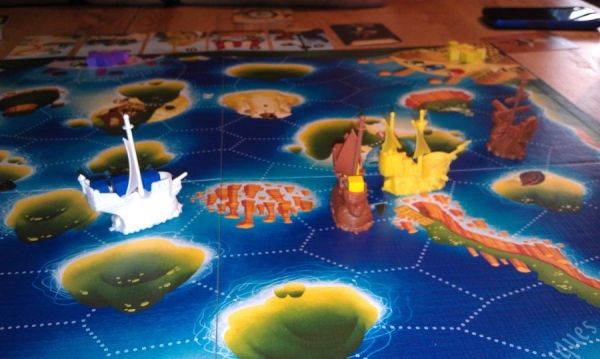
But those Glory cards are kind of where the two games intersect, as the Development cards in Black Fleet give similar advantages that are often even greater in magnitude, because of the more straightforward mechanics. This is where the minor chrome actually accelerates the system to a significant degree. Development cards are gained with the intention of being able to turn over your last card to win the game, but they also provide a good dose of the replayability of the game. From the easily obtainable options like Quick Launch, which allows your pirate to move up to 4 extra spaces upon entering the board (Movement!), to Insurance, which pays you doubloons for both missing cargo and sunk merchants (and was a genuine aspect of sailing in classical pirate times, as it is today), to Expert Crew, which lets you use movement values from both cards you draw, rather than one, to The Black Spot and Letter of Marque, which lets your pirate and merchant ships attack their own kind and gain doubloons for doing so, these cards also bring in the story aspect of the game that is integral to Merchants and Marauders. Similarly, knowing when and how to build up your Fortune cards to a "big combo" turn is often an excellent approach to putting your opponent's sails a long way toward the horizon.
One major difference between the two that hits both the "system" and "theme" perspectives is combat. In Black Fleet, it's basically nonexistent. It exists inasmuch as when a navy ship gets next to pirate, it attacks and sinks them, and when a pirate ship gets next to a merchant, it attacks and steals goods from them and maybe sinks them. But there is no "combat", per se, anymore than there is in chess (again, hearkening back to the abstract nature of the game.) In contrast, the combat system in Merchants & Marauders has been the source of most of the complaints about the game over the years, as it's quite involved, can slow the game down, involves copious dice rolls (Randomness!), and can be unusually punishing to the losing player. But this is also why Merchants & Marauders resembles games like Talisman, where there is also combat, both PVE and PVP, and where the losing player is set back markedly compared to his opponents. It's this one aspect that stands out most often in the fabled "Ameritrash" vs "Euro" comparison, wherein the former tends to have both combat systems and deleterious results for the loser, while the latter category typically does not (cue Tigris and Euphrates fans talking about the difference between revolt and war in one of the most "Euro" games of all time.) To many players, that's part of the essential tension and story of those games. To many others, it's a pretty "unfun" drawback and something they normally choose to avoid.
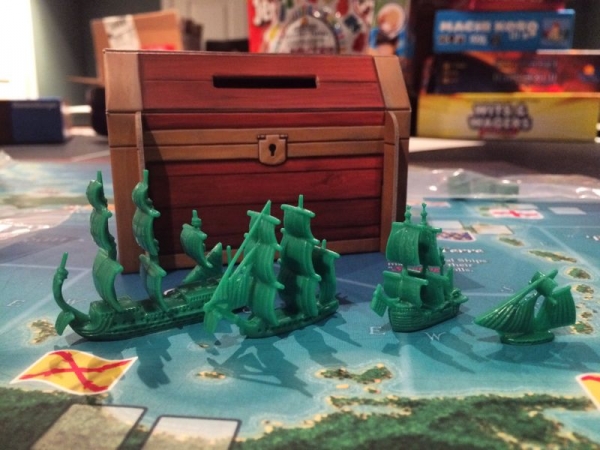
That said, Black Fleet, for a so-called "Euro" is still extremely ruthless in its player interactions. Just because there's not a drawn out system of Seamanship rolls and Grapeshot blasts doesn't mean that losing your last cube and seeing your merchant sunk on the verge of completing a crucial sale isn't a frustrating experience for the victim. Black Fleet is, after all, still a pirate game and it's that atmosphere that still embodies its play, abstracted or no. Things are rough out there on the ocean and it's all about being the hardest sea dog you can be if you're going to take home the victory. In fact, in some ways, the abstraction makes "combat" in this game almost more ruthless than in Merchants & Marauders because it's so quick and efficient and the prospects for revenge might be less likely because the card draw usually makes efficiency paramount when you're trying to win the game.
And that brings another insight. For all that Boardgamegeek is often decried as being dominated by Euro players in its rankings, when one looks at this one example (and, honestly, many others) that would seem to be counter-intuitive. Black Fleet is ranked as a relatively modest 809, whereas Merchants and Marauders is in the roughly elite status at 261. Given that said rankings aren't particularly scientific or measures of genuine quality, that may not tell us much. But what it might indicate is the question I started this piece with: Theme or function? Is Merchants & Marauders so much more highly regarded because it fully embraces the romantic notions that circulate around the idea of 17th- and 18th-century pirates? Or was it just better marketing and the typical Z-Man knowledge of the zeitgeist? Zev Shlasinger had a long record of putting quirky but deeply involving games under his banner and Merchants & Marauders is certainly one of those. OTOH, I've had multiple hardcore gamers, whose opinions I respect, tell me that they think that Black Fleet is, systemically, simply the superior play. Is that the difference between "hardcore" and widely experienced gamers and the wider crowd that rates things on BGG? Or is this questioning the very theory presented here: Does theme vs function matter on a broad level or is it down to personal and/or group preference?
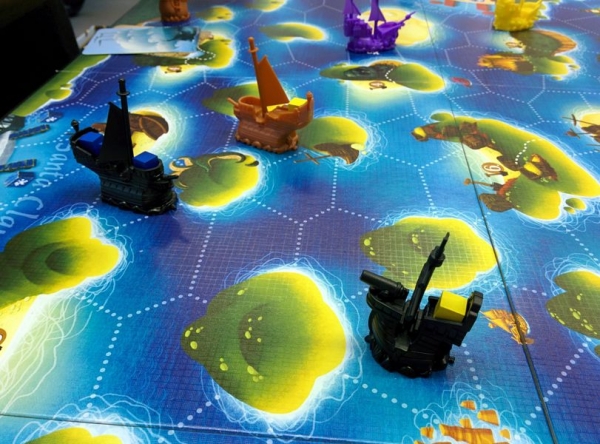
Right away, I'll say that I can more easily talk my girlfriend into playing something like Black Fleet. She tends to dislike games that seem to thrive on rolling with the punches of randomness and story elements. (She is, of all things, not a Cosmic Encounter fan. I know. I don't understand it, either.) But I know a friend who would vastly prefer to play something "crunchy" like Merchants & Marauders because she, too, is interested in stories and referring back to games from our history (She will never forgive another friend for stealing her Rage Blade and then losing it in his next challenge in Runebound and routinely brings it up.) But I have even more friends whom would gladly play either of them with very little debate. Asking most what they thought was a "better" game would probably produce something close to an even split, although I'd bet that the disdain for Merchants & Marauders's combat system would drive more visceral negative opinions than the lukewarm story elements of Black Fleet. So I don't think there is a definitive answer to the age-old Ameritrash vs Euro "conflict", even as we've moved well past those confining definitions that serve to label games about as well as specific music genres label performers in the modern era. It's a matter of convenience, certainly, but not a restriction. In the end, most games are privateers.
On a personal level, while I own and really like both of them, I will say that I tend toward Merchants and Marauders more often, despite its much longer play time and less elegant approach, largely because I tend to prefer games that emphasize story over function. Does that make me a romantic? Probably. But it doesn't mean that I wouldn't grab Black Fleet and more mechanical games like it (like, say, T&E) off the shelf in a second because I like games like that, too. Frankly, when it comes to the question of story, I'm even more likely to be a romantic about a game with ninjas than pirates... (Deep dive into Shogun/Samurai Swords/Ikusa incoming.)
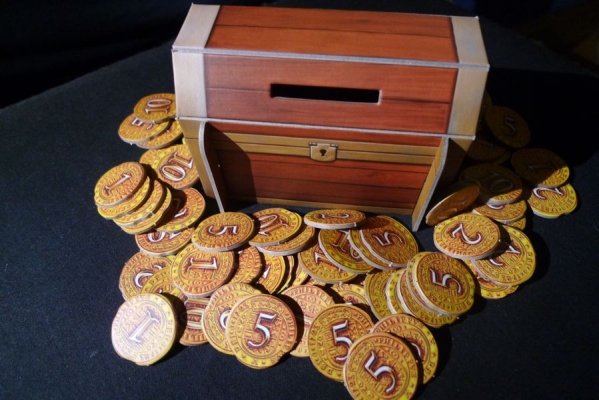
 Games
Games How to resolve AdBlock issue?
How to resolve AdBlock issue? 